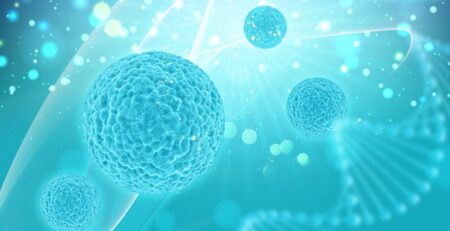MSCs Stem Cells with Severe COVID-19 ARDS
There is an ongoing critical need to improve therapeutic strategies for COVID-19 pneumonia, particularly in the most severely affected patients. Adult mesenchymal stem cell (MSC) infusions have the potential to benefit critically ill patients with acute respiratory syndrome SARS-COV-2 infection, but clinical data supporting efficacy are lacking.
Methods We conducted a case-control study of critically ill patients with laboratory-confirmed COVID-19, severe acute respiratory distress syndrome (ARDS). To evaluate clinical responsiveness in the most critically ill patient we examined outcomes in a sub-group of those requiring extracorporeal membrane oxygenation (ECMO) support. Patients (n=9) were administered with up to 3 infusions of intravenous (IV) MSCs and compared to a local ECMO control group (n=31). The primary outcome was safety, and the secondary outcomes were all-cause mortality (or rate of hospital discharge), cytokine levels, and viral clearance.
Findings MSC infusions (12 patients) were well tolerated and no side effects occurred. Of ECMO patients receiving MSC infusions, 2 out of 9 died (22.2%; 95%CI: 2.8%, 60.0%) compared with a mortality of 15 of 31 (48.4%; 95%CI: 30.2%, 66.9%; p = 0.25) in the ECMO control group. Isolated plasma exosomes containing the SARS-COV-2 Spike protein decreased after MSC infusions between day 14 or 21 after administration (p=0.003 and p=0.005, respectively) and was associated with a decrease in COVID-19 IgG Spike protein titer at same time points (p = 0.006 and p=0.007, respectively). Control ECMO patients receiving convalescent plasma did not clear COVID-19 IgG over the same time frame.
Interpretation Together these findings suggest that MSC IV infusion is well tolerated in patients with a broad range of severity including the most severe COVID-19 ARDS requiring ECMO. These data also raise the possibility that MSCs, in addition to exerting an immunomodulatory effect, contribute to viral clearance and strongly support the conduct of randomized placebo-controlled trial.
Competing Interest Statement
Conflict of Interest Disclosures: Dr. Joshua Hare reported having a patent for cardiac cell-based therapy. He holds equity in Vestion Inc. and maintains a professional relationship with Vestion Inc. as a consultant and member of the Board of Directors and Scientific Advisory Board. Dr. Hare is the Chief Scientific Officer, a compensated consultant and advisory board member for Longeveron and holds equity in Longeveron. Dr. Hare is also the co-inventor of intellectual property licensed to Longeveron. A. Khan discloses a relationship with AssureImmune Cord Blood Bank and Aceso Therapeutic that includes equity. Dr. Sunjay Kaushal is founder of Neoprogen. The other authors report no conflicts.
Clinical Trial
Trial was conducted under FDA emergency IND (eIND) – 21CFR 312


Leave a Reply
You must be logged in to post a comment.